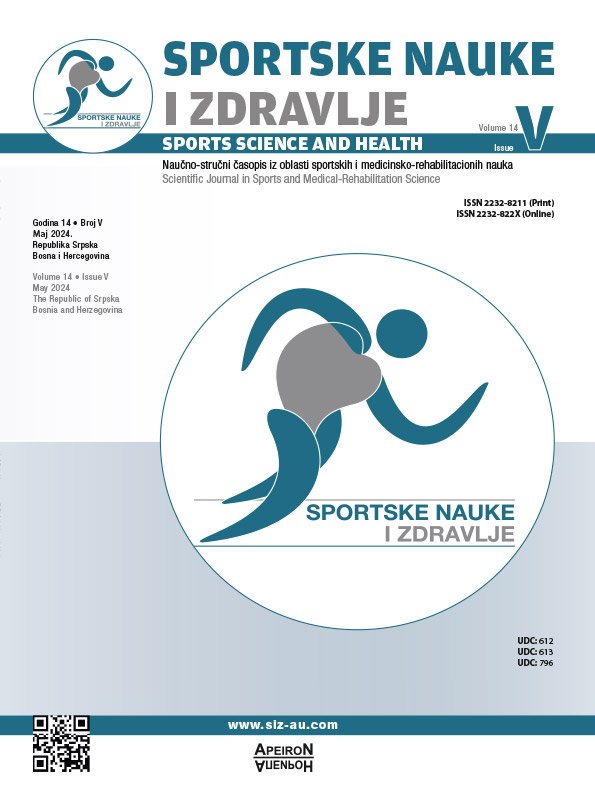Biomarkers of Muscle Damage and Physical Performance After Soccer Matches for Women’s Soccer Teams
DOI:
https://doi.org/10.7251/SSH24V005DKeywords:
Biomarkers, Muscle Damage, Muscle Performance, Women SoccerAbstract
Soccer is the most famous sport in the world. Soccer is a sport with moderate to high intensity, which can cause physical and physiological fatigue in soccer athletes. Limited recovery time can also increase muscle tissue damage. Therefore, this study aimed to examine the time interval for performance recovery in female amateur soccer athletes as measured by checking physical performance and through biomarkers after a soccer match. Quantitative research is used. The type of experimental research is pre-experimental with a one-group pretest-posttest design. Sampling in this study used an accidental sampling technique. The respondents were 20 female soccer athletes who competed in the u17 women’s soccer competition. The variables examined in the research included vertical jump, CPK, LDH, and Il-6. Examinations are carried out before the match, immediately after the match, 24 hours after, and 48 hours after. Next, the results were analyzed using the one-way ANOVA and post-hoc follow-up tests via the SPSS application. Doing soccer can reduce physical performance and increase CPK, LDH, and IL-6 levels due to fatigue. Fatigue peaks significantly after 24 hours after the match. However, 48 hours after the match, the fatigue gradually disappeared and decreased. Based on this research, female athletes’ soccer matches must be accompanied by a sufficient recovery time of at least 48 hours to avoid muscle damage and an increased decline in muscle performance.
